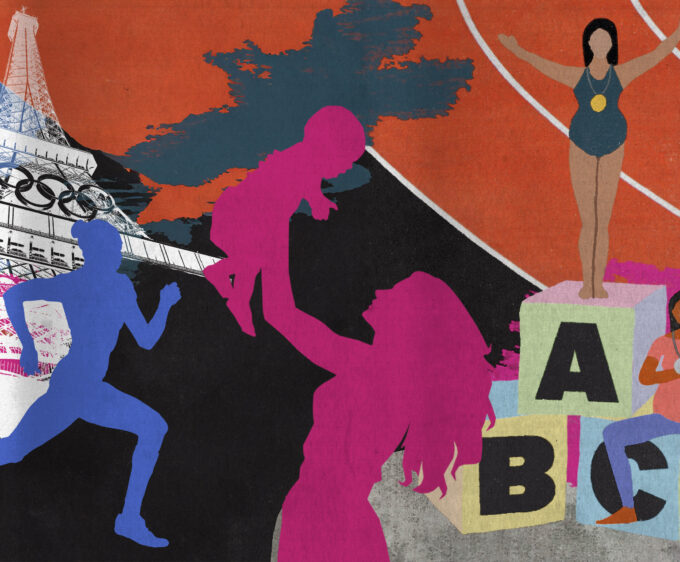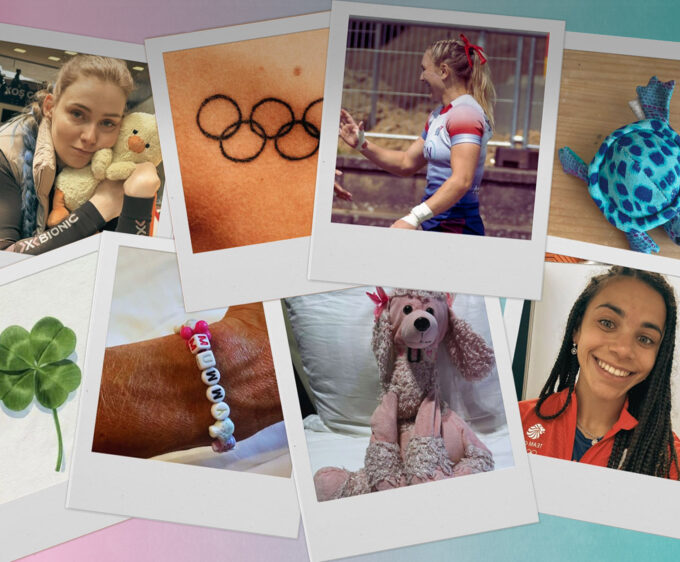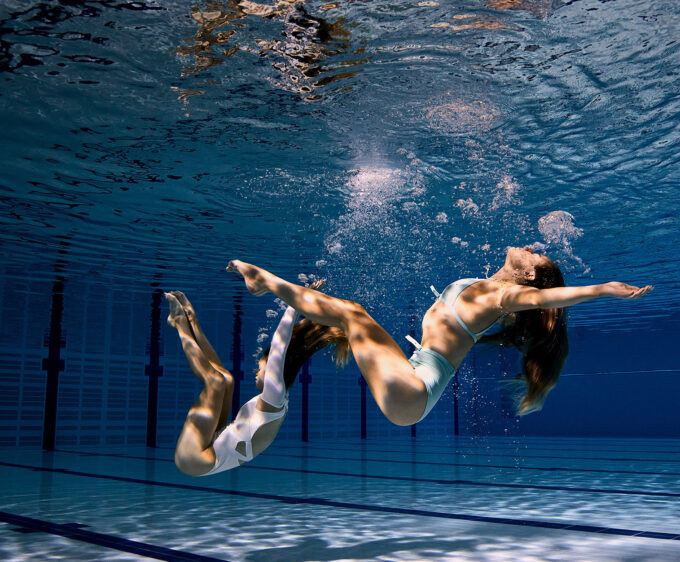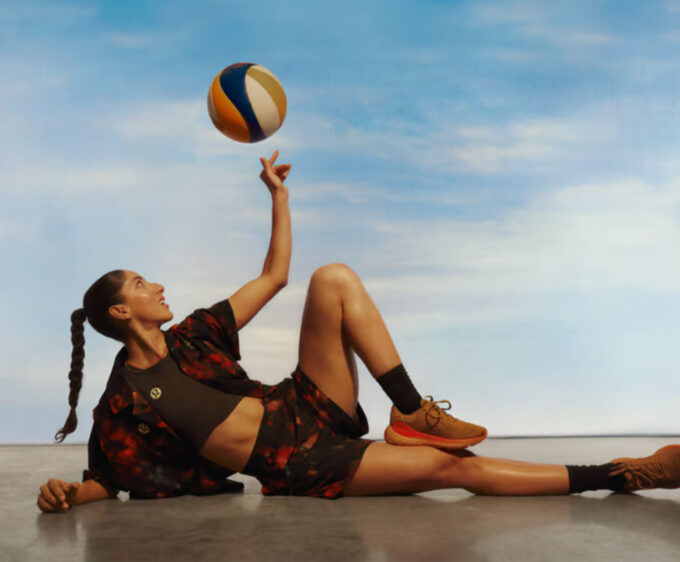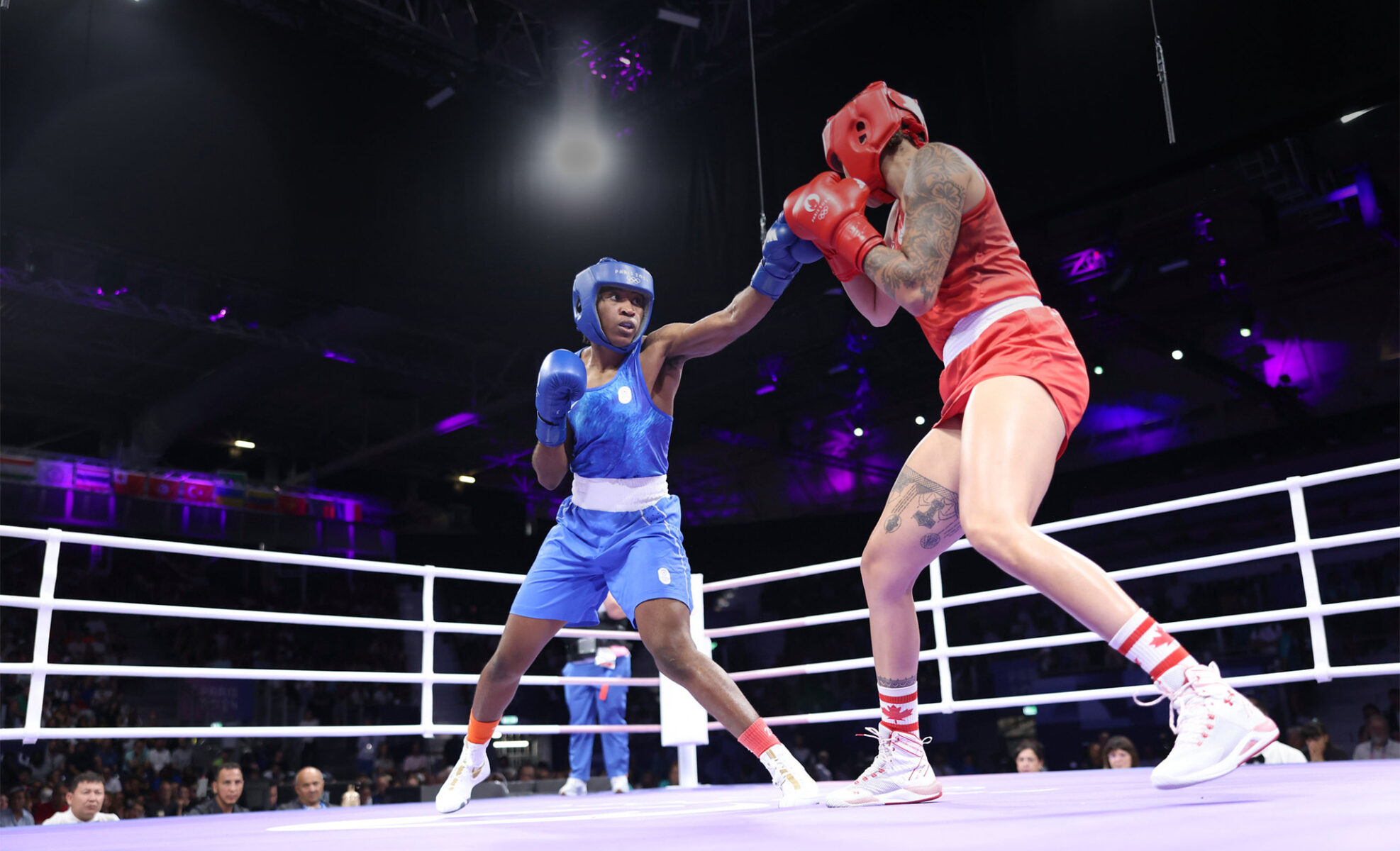
#PARIS2024: Conflict To Champion
From conflict zones to Olympic glory, the Refugee Olympic Team, led by boxing star Cindy Ngamba, has shown the world the true meaning of courage and resilience.
By Natasha
“Hang on in there Cind, just hang on in there!”
A broad Liverpudlian accent resonates through the boxing ring as sips of water are gently poured into Cindy Ngamba’s mouth. The man responsible for the water and these wise words is her trusted coach, guiding her through each round against Panamanian boxer Atheyna Bylon in the Olympic semi-final. The bell rings for the third round, and Bylon is declared the victor by a split judges decision. Cindy, shrugs. She smiles and waves at the crowd, then swiftly exits the arena.
As a viewer, I can’t help but feel gutted. My partner turns to me, “She was robbed,” he says. Silently, I nod, echoing Cindy’s gesture, I shrug my shoulders, and walk into the other room to write this piece.
I had envisioned writing about Olympic gold medals in the face of adversity, but as I reflect on the 25-year-old’s career, I realise I’ve got it all wrong. While she missed out on silver or gold, Cindy Winner Djankeu Ngamba—note the middle name, Winner—has achieved something truly spectacular. By reaching the semi-finals and securing a bronze medal, she has become the first-ever medallist for the Refugee Olympic Team. Cindy’s name is now etched into Olympic history.
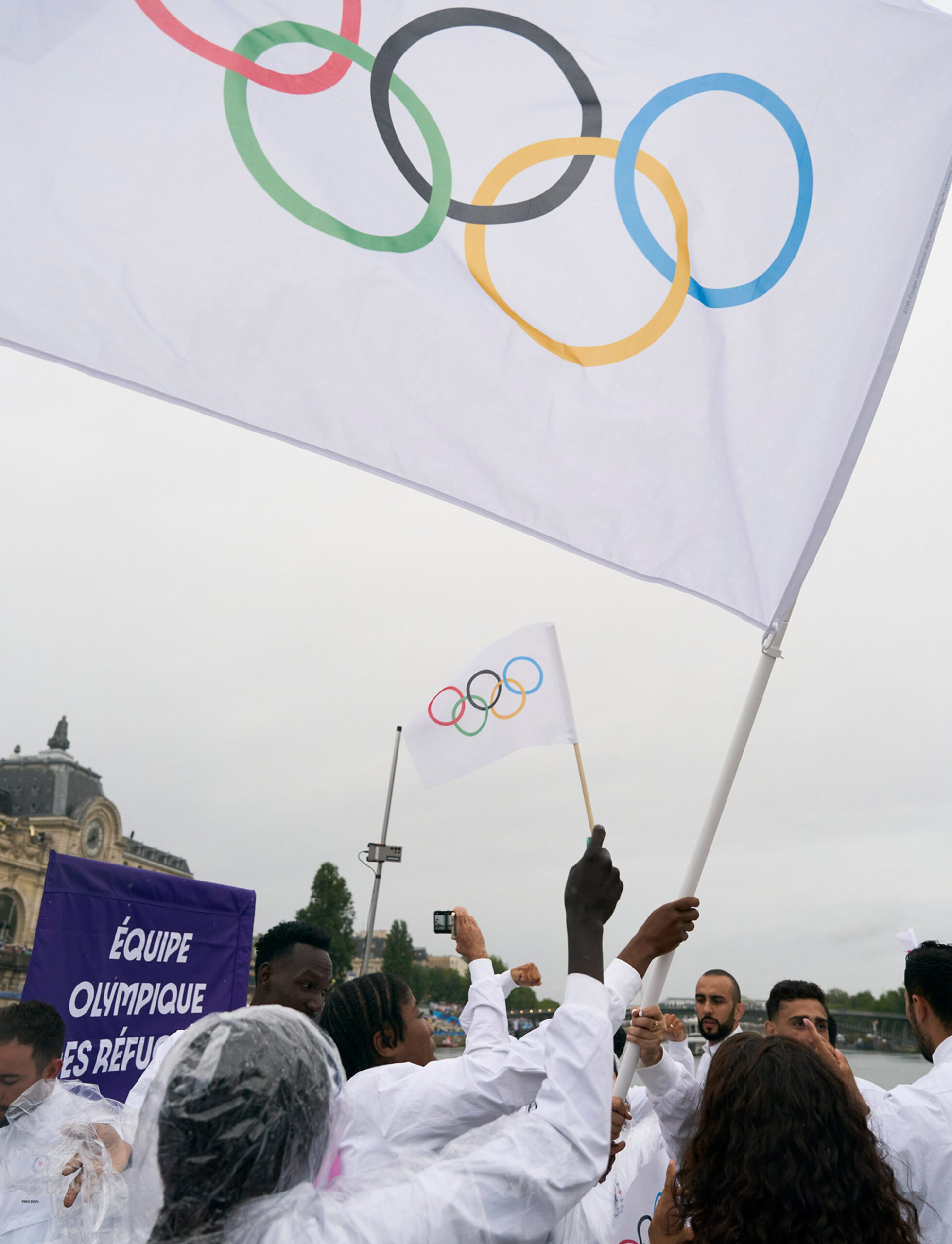
Competing under the Refugee Olympic Team, known by its French name, Équipe Olympique des Réfugiés (EOR), Cindy’s achievement is more than just an athletic feat. The bronze is a medal of resilience in the face of adversity. Her journey, marked by displacement and conflict, culminated in a moment that touched spectators across the globe. This wasn’t just about boxing skill; it was a celebration of perseverance, teamwork, and the dedicated coaches trained to deliver safe sport sessions before the Games.
Ngamba’s journey to Olympic glory was anything but a fairytale. Hailing from Cameroon, she fled her home at just eleven years old due to persecution based on her sexuality. Same-sex relationships are criminalised in Cameroon, punishable by up to five years in prison. Seeking refuge, Ngamba found herself starting anew in Bolton, England; where you may think things would be pretty straightforward, but the transition was brutal. Cindy shares, “When I came to England, I became an introverted child. I think it was mainly because of the language barrier. English wasn’t my first language; French was. I had to adapt to life in general”. A new language, bullying, and the challenges of adapting to a different culture transformed the once outgoing child into a quieter, more introspective young woman.
In this unfamiliar landscape, boxing emerged as a lifeline. A chance encounter at a local youth club sparked a passion that would shape her future. What began as an escape from her troubles soon transformed into her driving force. Inspired by the introduction of women’s boxing at the London 2012 Olympics, Cindy developed an intense desire to stand on the Olympic podium.
In 2019, then-Prime Minister Theresa May visited Cindy’s boxing club and praised the young fighter’s talent. Yet just months later, Cindy faced the threat of deportation by the Home Office. Despite living and training in Bolton since the age of 11, she has still not been granted British citizenship. This situation forced her to compete with the Refugee Olympic Team, despite training with Team GB.
Through it all, Cindy’s determination never wavered. She committed herself to rigorous training, overcoming countless hurdles along the way. Reflecting on her journey, Cindy said, “Boxing has been hard. But now the refugee team has welcomed me with open arms. I was able to challenge any obstacles. I’m happy that I was able to win a medal.” She also expressed her gratitude: “I just want to thank GB Boxing, my coaches—Dave, Lee, Gary, Graham—and the Refugee Olympic Team for standing by my side, as well as my family and God for all the hard work that I’ve put in.”
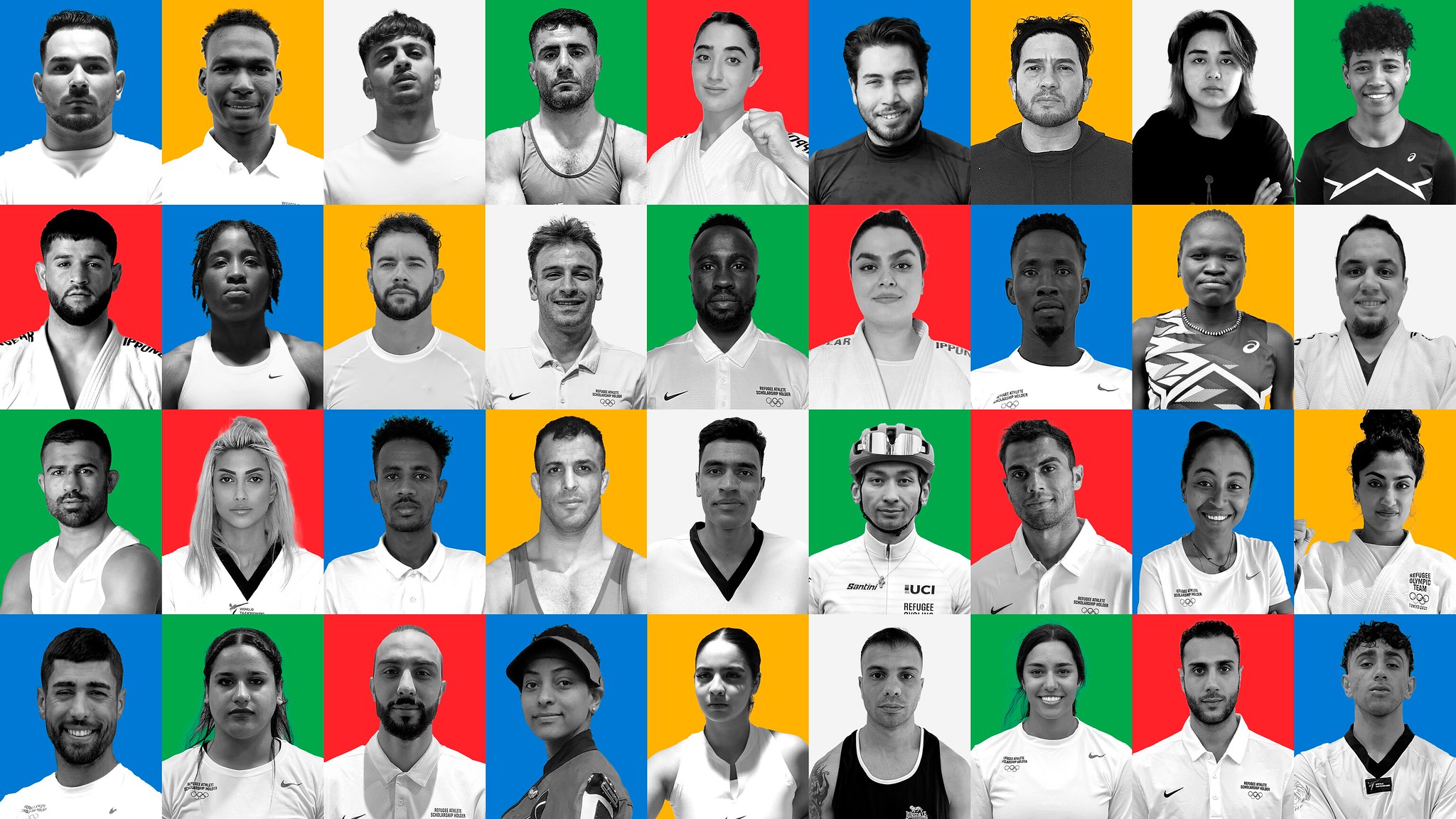
The EOR athletes, hailing from different backgrounds and cultures, form a tight-knit community. This bond is evident in the support they offer each other. After Cindy’s quarter-final victory over France’s Davina Michel, the boxer expressed gratitude for her teammates’ encouragement, “Some of them (EOR teammates) took the time to come and watch me fight. I appreciated it, from the bottom of my heart. It is a very selfish sport (boxing) in general. Even if I don’t go to see all of them, I’m praying for them!”.
She continued, “We have this thing in the Refugee building where we have a paper sheet with everyone’s name, sport, time and the day they will be competing. I think there were two refugees competing in the morning before me. I was stuck in the elevator, and I was praying for them. I hope that they gave their all”.
The Refugee Olympic Team made a notable statement at Paris 2024 with 37 athletes competing under its banner, alongside a Refugee Paralympic Team of eight athletes and a guide runner. Their presence at the Games serves as a reminder of the sheer grit required to overcome immense challenges. This marks the team’s third appearance, following its debut at the 2016 Rio de Janeiro Games, and its participation at the 2020 Tokyo Games, held in 2021 due to the Pandemic.
The EOR athletes, each with their own stories of both struggle and achievement, embody a spirit of unity and hope. Take Manizha Talash, Afghanistan’s first female breakdancer. Hooked on breakdancing after watching a video of someone spinning on their head, she joined Kabul’s break dancing group, ‘Superiors Crew’. Facing family pressure and a bombing near her dance studio, she fled to Spain. “If I’d stayed in Afghanistan, I don’t think I’d exist,” she says. “They’d execute me or stone me to death”. Competing in breakdancing’s debut at the Games, Manizha represents Afghan women: “The girls of Afghanistan will never surrender. We will fight and we will win!”.
unwavering
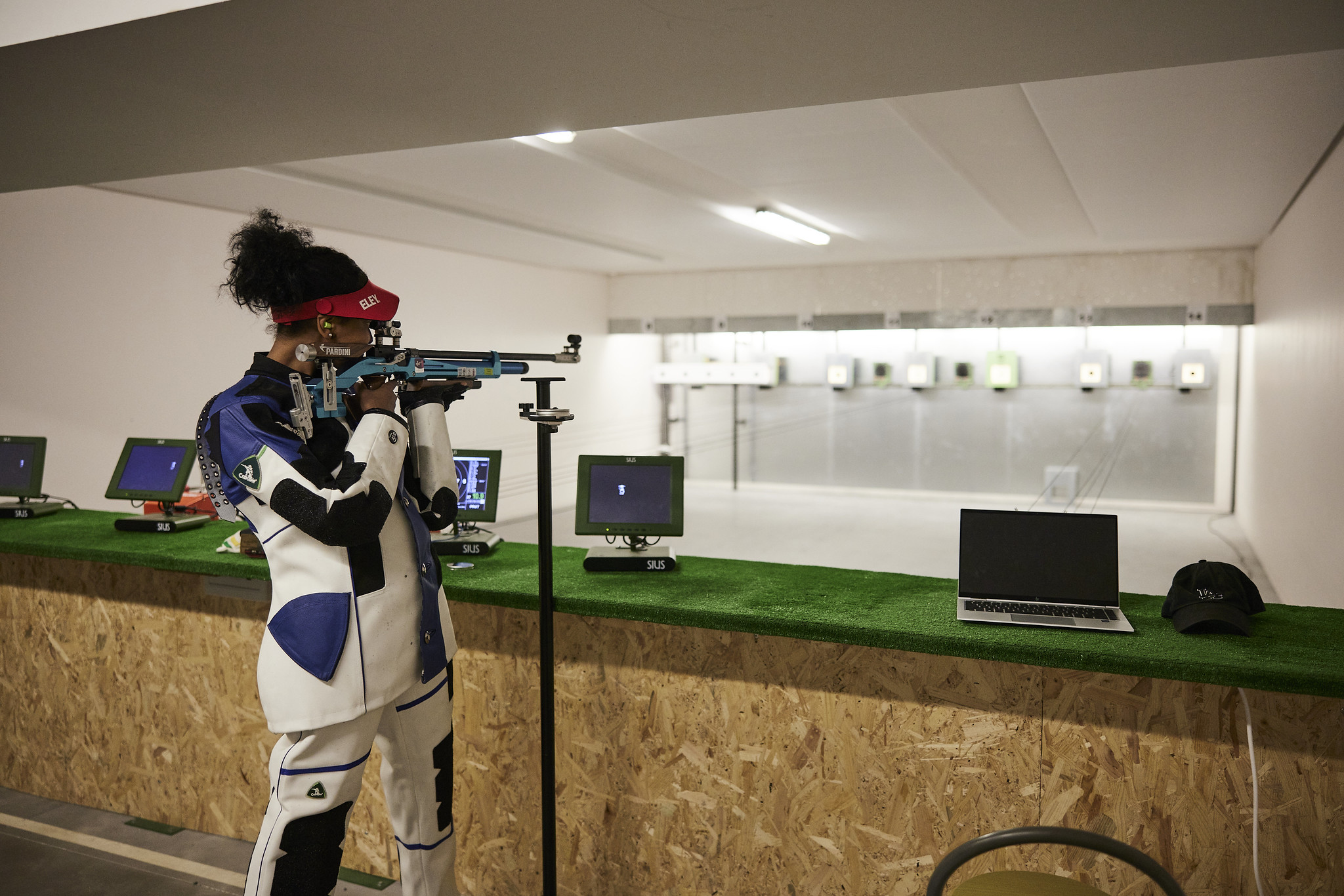
Looking at Dina Pouryounes’ taekwondo record, it’s hard to believe she was homeless just six years ago. The Iranian fled her homeland in 2015 and eventually settled in the Netherlands. There, taekwondo became her salvation, helping her positively channel her frustrations, build a community, and achieve a world number three ranking. Similarly, fellow Iranian, Saman Soltani, was preparing to return home from an artistic swimming camp in Barcelona in 2022, when she received a warning from her parents not to return to Iran after posting photos of herself wearing swimwear on Instagram. Iran’s morality police were searching for her. Panicked and stranded, she flew to meet a friend in Austria, where she was later granted asylum. Saman thrived in Austria, rediscovering her passion for kayaking and competing in the discipline at Paris 2024.
Perina Lokure Nakang, a South Sudanese runner, discovered her talent for middle-distance running in a Kenyan refugee camp. Meanwhile, Luna Solomon, an Eritrean refugee, endured a perilous journey across the Mediterranean without a passport to find safety, at the age of 21, in Switzerland. Ten years later, she’s a key player on the Refugee Olympic Team, representing them in shooting.
Whilst these harrowing tales of displacement and danger highlight the immense challenges faced by these athletes, they also illuminate the remarkable power of sport. Their stories shed optimism for the world and the EOR’s mission to empower refugees, by providing a pathway for them to rebuild their lives through sport.
Ngamba summed up the spirit of the Refugee Olympic Team, saying, “It means the world to me to be the first team member to win a medal. I’m just human, like any other refugee. There are refugees all around the world. I want to say to all the refugees out there: keep on working hard, keep on believing in yourself. You can achieve whatever you put your mind to”.
In the grand tapestry of the Olympic Games, the EOR stands out as a vibrant thread woven with bravery and triumph. They are more than a team; they’re a family united by shared struggle. Their presence at the Paris Games makes a strong statement: refugees are not victims but survivors, competitors, and champions. Their stories remind us that even in the darkest situations, hope can turn into remarkable success.
Find out more about the Refugee Olympic Team here.
Title photograph of Cindy Ngamba boxing Canada’s Tammara Thibeault in the first round of Paris 2024 by IOC/John Huet

